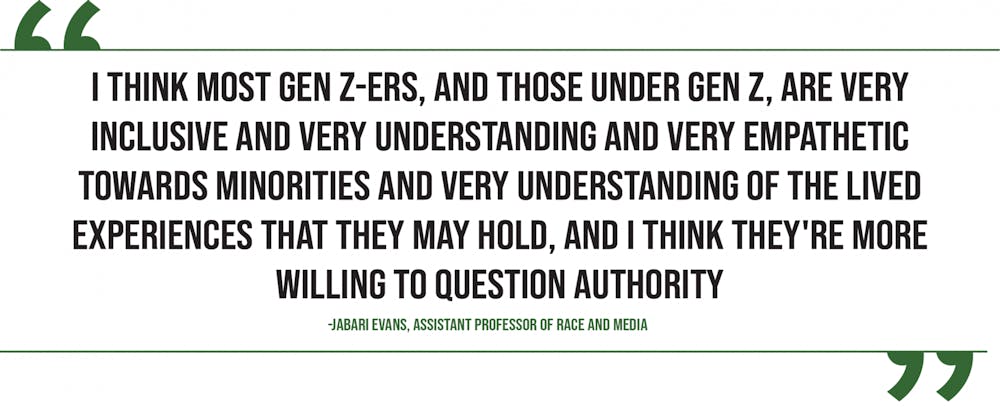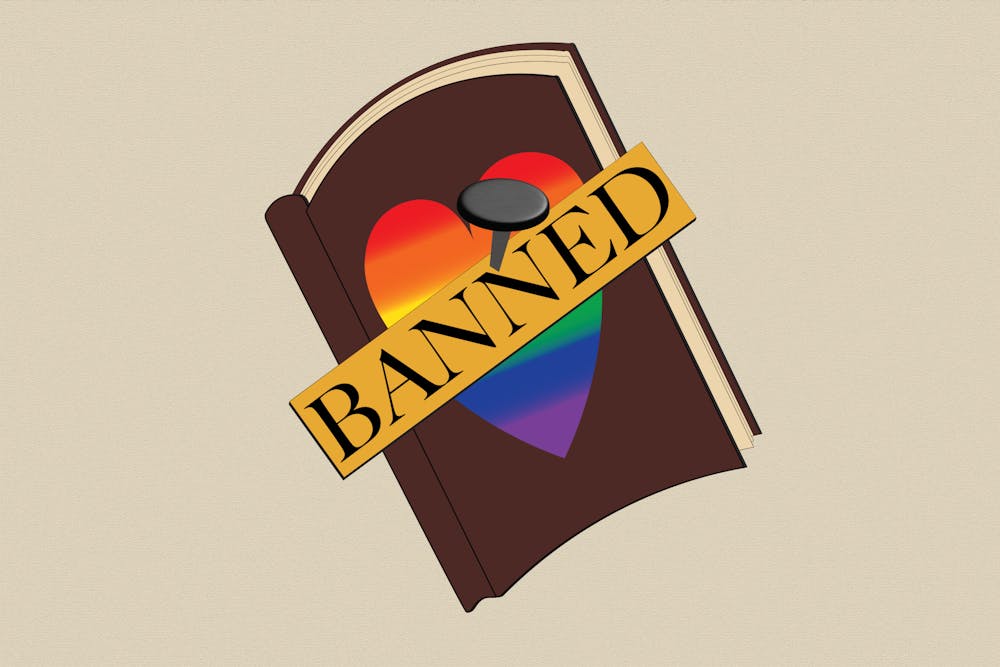The state of South Carolina must champion the younger generation in its journey for equality for the LGBTQIA+ community, especially as bans on LGBTQIA+ books and antiquated beliefs have taken the spotlight in this state.
Banning these books not only hinders the education of South Carolina's next generation, but it also instills a great deal of fear-mongering with respect to this community.
This movement came about in response to Maia Kobabe's memoir "Gender Queer," which allegedly portrayed pornographic illustrations and topics within the novel, according to reporting done by NBC News. In South Carolina, Gov. Henry McMaster called for the book to be banned in all schools last year.
Since the 2015 Supreme Court decision on same-sex marriage, the LGBTQIA+ community has made significant strides in its work towards equality through marches, protests and petitions demanding accountability. But the campaign to ban books like Kobabe's pushes back on that progress using an agenda set on erasing the voices of certain minority groups.
"The only way to really maintain hegemonic force, or dominant force, over the narrative is to spin the narrative," Jabari Evans, assistant professor of race and media, said. "So in saying that schools are possibly putting pornographic material in front of youth, that's clickbait right? It's something that, if done and executed in the right way, can mislead some folks and give misinformation."

Spinning the audience's perspective to create fear for these topics on behalf of their children only creates a false reality and fosters a negative association with the LGBTQIA+ community.
The fear created due to new laws being passed is discouraging to the people of this community. It instills the sense that progress is moving backward rather than forward.
"Well, I have to say I'm not surprised," Sam McKenzie, a USC law student, said. "But you know, that is really awful for not just my community but people in general because that's how you learn about other people's experiences."
Boosting this ignorance creates fallacies and, ultimately, an under-educated populous in regards to topics of diversity and inclusion.
Not only has McMaster been condemned for the move to ban LGBTQIA+ books, but also for approving a law this year that effectively bans transgender students from participating on sports teams that align with their gender identity.
This law exemplifies how a community that has fought for decades to earn basic equality has to now face stark opposition from its own governing leaders. South Carolina does not have a good support system for the LGBTQIA+ community, and it is prevalent to its members.
"I find it very disappointing," Gianna Modicamore, a USC alum and previous president of Pride in Professionalism club, said. "I think for some people that don't really understand the full issue, the idea of young children being exposed to these issues is a bad thing, but, I mean, I think it's quite the opposite."
Without being taught love and acceptance of all from a young age, each new generation will perpetuate the cycle of ignorance in society.
Evans has championed for the younger generation to be the change. Though the LGBTQIA+ community is currently facing backlash in South Carolina via McMaster's recent approval of restrictive legislation, Evans is looking, encouraging and preparing the future generations to introduce some much-needed changes through his race and media classes.
"I think most Gen Z-ers, and those under Gen Z, are very inclusive and very understanding and very empathetic towards minorities and very understanding of the lived experiences that they may hold, and I think they're more willing to question authority," Evans said.
McMaster's movement to ban books about LGBTQIA+ topics is a clear step backwards after the significant progress the community has made over recent years, but it is time for people with power in this state to champion inclusivity moving forward. Banning books won't stop the spread of knowledge, it will only heighten the need for more transparency and education.
If it does not start with our generation, who will be the one to initiate change? Making change may feel uncomfortable at first and will inevitably be unfavorable for some, but, in the end, this work will give a voice to the many that have been silenced. The next class of South Carolinians in positions of power need, now more than ever, to be empathetic and work towards equality across the board.

